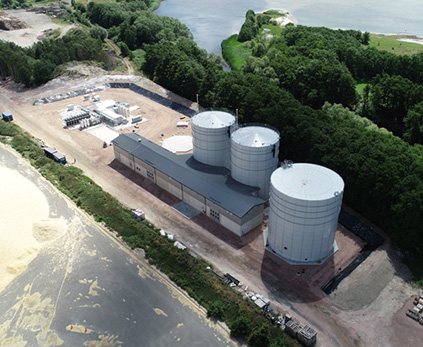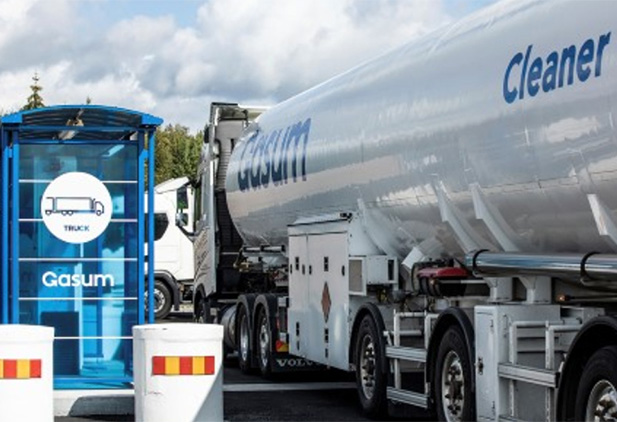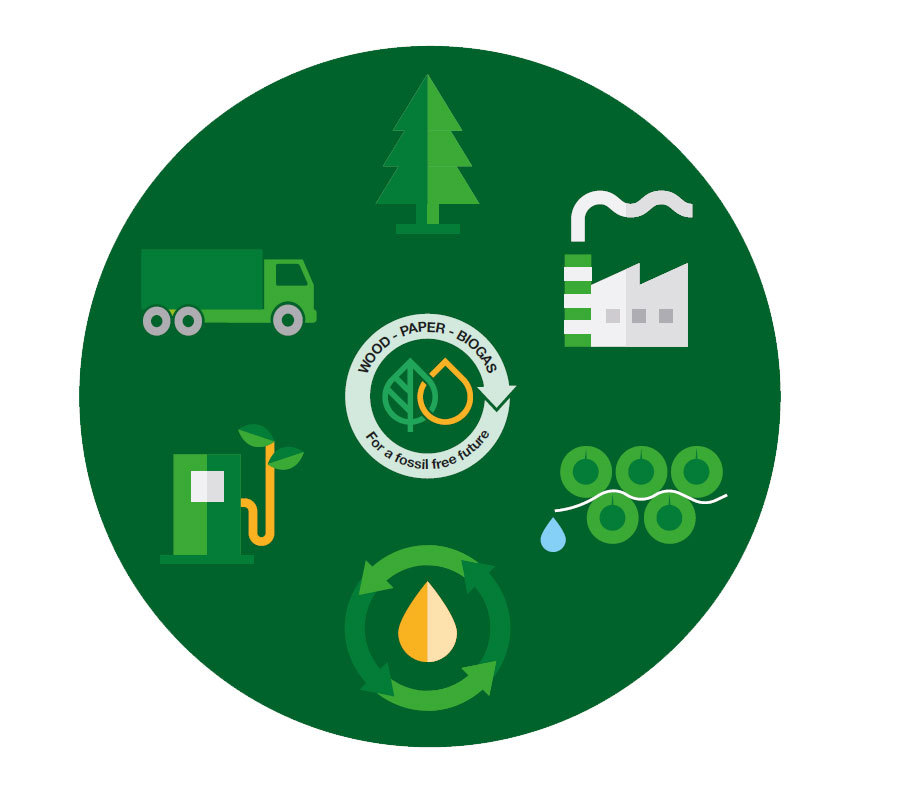A joint effort to change the game
We have made it our business to push the boundaries when it comes to renewable materials and sustainability, by engaging in innovative solutions and partnerships that help making way for a fossil-free future. Together with Gasum, we are making use of process water residue – turning it into biogas.

Biogas
Biogas is a type of biofuel produced naturally from the decomposition of organic matter. The gas is formed when micro organisms break down the waste in a closed environment without oxygen, this process is also referred to as anaerobic digestion. This digestion releases gas which is liquified to Liquid Biogas (LBG).

From residue to fuel
At our Nymölla mill, residue from the process water from production is converted into liquefied biogas (LBG) – a renewable fuel mainly used for heavy-duty vehicles. The expected LBG production of the plant is 75-90 GWh per year.
Biogas is a type of biofuel produced naturally from the decomposition of organic matter. The gas is formed when microorganisms break down the waste in a closed environment without oxygen; this process is also referred to as anaerobic digestion. This digestion releases gas which is then liquified to Liquid Biogas (LBG).

Finding the most innovative, sustainable solutions calls for partnering with like-minded experts
Energy company Gasum built the biogas plant at our Nymolla paper mill in Sweden, where Multicopy is produced. The plant, built and operated by Gasum, turns the mill’s residue water into the renewable energy liquefied biogas (LBG).
Gasum are the leading supplier of biogas and processer of biodegradable waste fractions in the Nordic countries. Gasum promote the circular economy by processing organic waste and producing biogas and recycled nutrients.

This is how we do it
Transforming residue water into fossil free fuel
-
It all starts with a tree growing in a sustainably managed forest.
-
Our wood is mainly sourced within a 100km radius and taken to Nymolla mill.
-
In the process of turning wood into premium office paper, water is gradually removed in both the pulp and paper making process.
-
A stream of residue water is pumped into a reactor where biogas is produced after organic materials are broken down by bacteria in an oxygen-free environment – a process called anaerobic digestion. The biogas is then cooled down to minus 160C and turned into liquefied biogas.
-
The LBG is stored in an insulated tank before it’s pumped to trailers and transported to gas stations where it’s used to fuel heavy-duty vehicles.
-
By using LBG instead of diesel, the greenhouse gas emissions can be reduced by up to 90%.



